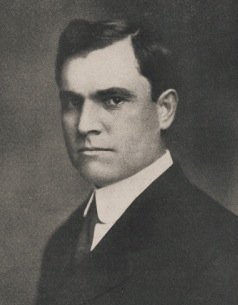A Quote by Joseph Fort Newton
Whether there were organized orders of builders in the early times no one can tell, through there may have been. No matter; man mixed thought and worship with his work, and as he cut his altar stones and fitted them together he thought out a faith by which to live.
Related Quotes
What makes a free thinker is not his beliefs, but the way in which he holds them. If he holds them because his elders told him they were true when he was young, or if he holds them because if he did not he would be unhappy, his thought is not free; but if he holds them because, after careful thought, he finds a balance in their favor, then his thought is free, however odd his conclusions may seem.
This was one of the greatest test of his faith he had ever experienced. The thought of deceiving the kind and faithful wife of his youth... was more than he felt able to bear.... his sorrow and misery were increased by the thought of my mother hearing it from some other source, which would no doubt separate them, and he shrank from the thought of such a thing, or of causing her any unhappiness.
To be a religions man and to pray are really one and the same thing. To join in the thought of God with every thought of any importance that occurs to us ; in all our admiration of external nature, to regard it as the work of His wisdom ; to take counsel with God about all our plans, that we may be able to carry them out in His name ; and even in our most mirthful hours to remember His all-seeing eye ; this is the prayer without ceasing to which we are called, and which is really the essence of true religion.
The whole earth is a living icon of the face of God. ... I do not worship matter. I worship the Creator of matter who became matter for my sake, who willed to take His abode in matter, who worked out my salvation through matter. Never will I cease honoring the matter which wrought my salvation! I honor it, but not as God. Because of this I salute all remaining matter with reverence, because God has filled it with his grace and power. Through it my salvation has come to me.
I could tell by his expression that once he got over his anger at me for keeping this secret from him, there was nothing left to talk about. He wasn't confused. He didn't need questions answered. He didn't ask why or how or with whom or whether I thought maybe it might just be a phase. He didn't ask who knew and who didn't know or whether I thought it might ruin my career. I was his sister and he didn't care whether I was straight or gay; it simply didn't matter to him.
This is what I thought: for the most banal even to become an adventure, you must (and this is enough) begin to recount it. This is what fools people: a man is always a teller of tales, he sees everything that happens to him through them; and he tries to live his own life as if he were telling a story. But you have to choose: live or tell.
We dare not trim stones to make God an altar, for if we do we ruin everything. We would spend time bringing people to the altar and saying, "Look at those beautiful stones we trimmed!" We merely need to accept the work that God has done for us in Christ. The object of His restrictions is to help us see how wonderful He is and to spend the rest of our lives rendering true worship to Him.
The young man [Turgot] destined for an ecclesiastical career was placed within walls carefully designed to keep out all currents of new thought; his studies, his reading, his professors, his associates, all were combined to keep from him any results of observation or reflection save those prescribed: probably, of all means for stifling healthy and helpful thought, a theological seminary, as then conducted whether Catholic or Protestant, Jewish or Mohammedan, was the most perfect.
He paused, twisting his goatee, considering the law in Deuteronomy that forbade clothes with mixed fibers. A problematic bit of Scripture. A matter that required thought. "Only the devil wants man to have a wide range of lightweight and comfortable styles to choose from," he murmured at last, trying out a new proverb. "Although there may be no forgiveness for polyester. On this one matter, Satan and the Lord are in agreement.
There is a note that comes into the human voice by which you may know real weariness. It comes when one has been trying with all his heart and soul to think his way along some difficult road of thought. Of a sudden he finds himself unable to go on. Something within him stops. A tiny explosion takes place. He bursts into words and talks, perhaps foolishly. Little side currents of his nature he didn't know were there run out and get themselves expressed. It is at such times that a man boasts, uses big words, makes a fool of himself in general.
If there were some solitary or feral man, the passions of the soul would be sufficient for him; by them he would be conformed to things in order that he might have knowledge of them. But because man is naturally political and social, there is need for one man to make his conceptions known to others, which is done with speech. So significant speech was needed if men were to live together. Which is why those of different tongues do not easily live together.
Here, take this, she would say, take this, and tell me where he is. Tell me whether he's dead or alive, so I can walk as his widow or his wife. No one would, or could, tell her, and so she continued to cook, and to learn new things all the while searching for an answer among the outcasts. The way he carried his body, the way he walked in my life, Tatiana thought, declared that he was the only man I had ever loved, and he knew it. And until I was alone without him, I thought it was all worth it.

































